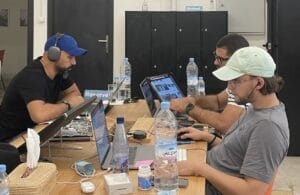Remote Work Best Practices: Strategies for Effective Virtual Work | Moz
Working remotely has become increasingly popular in recent years, and with the global pandemic of 2020, it has become a necessity for many companies and employees. While the concept of remote work may seem appealing – no commute, flexible schedule, working from the comfort of your own home – it also comes with its own set of challenges.
In order to maximize productivity and success while working remotely, it is important to implement effective strategies and best practices. In this guide, we will discuss some key strategies for successful remote work that can be applied by individuals and organizations alike.
Establish a Dedicated Workspace
One of the most important aspects of remote work is creating a designated workspace. This could be a separate room in your home, a desk in the corner of your living room, or even just a specific spot at your kitchen table. The key is to have an area that is solely dedicated to work and free from distractions.
Having a physical separation between your work and personal life can help create mental boundaries and improve focus and productivity. It also signals to others in your household that you are in work mode and should not be disturbed unless absolutely necessary.

Create a Routine
Working remotely often means having more flexibility with your schedule, but it’s important to establish a routine for yourself. This can include setting specific times for starting and ending work, taking breaks, and completing certain tasks.
Having a routine not only helps with time management but also helps maintain a healthy work-life balance. It can also be helpful to communicate your schedule with others in your household so they know when you are available for work-related activities.
Utilize Technology
In today’s digital age, there are numerous tools and technologies available to facilitate remote work. From video conferencing software to project management tools, utilizing technology can help improve communication, collaboration, and organization while working remotely.
It is important to familiarize yourself with these tools and find the ones that work best for you and your team. Regularly communicating through video calls or instant messaging platforms can also help combat feelings of isolation that may come with working remotely.
Stay Connected and Engaged
Working remotely can sometimes feel isolating, but it is important to stay connected with your colleagues. Make an effort to regularly check-in and communicate with your team members, whether through virtual meetings or informal chats.
It is also helpful to participate in virtual team-building activities or create a remote work community where you can share tips and experiences with others. Keeping yourself engaged and connected can help maintain motivation and morale while working remotely.

Take Care of Your Mental and Physical Health
Remote work can blur the line between work and personal life, making it easy to overwork yourself. It’s important to prioritize your mental and physical health by setting boundaries, taking breaks, and finding ways to destress.
Make time for activities outside of work such as exercise, hobbies, or spending time with loved ones. It’s also important to take care of your workspace by ensuring it is comfortable and conducive to productivity.
Conclusion
Remote work can offer many benefits but it also requires effective strategies and practices to ensure success. By creating a dedicated workspace, establishing a routine, utilizing technology, staying connected and engaged, and prioritizing your health, you can effectively navigate the challenges of remote work and thrive in a virtual environment.
Remember that remote work is not just about completing tasks and meeting deadlines – it’s also about finding balance and taking care of yourself.



















